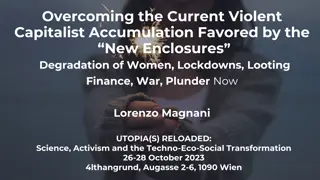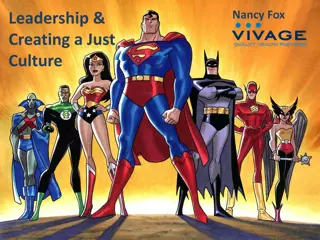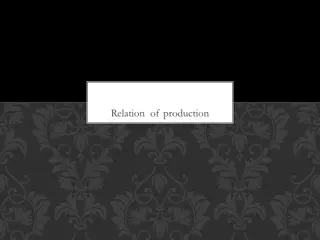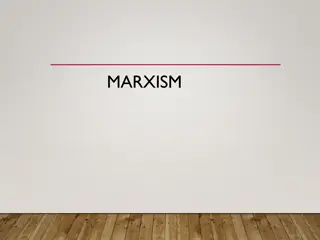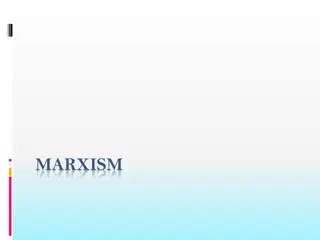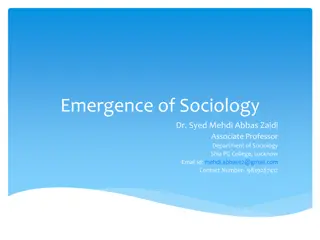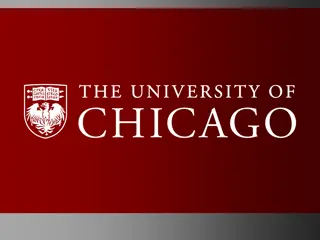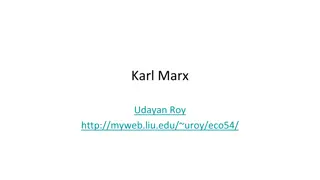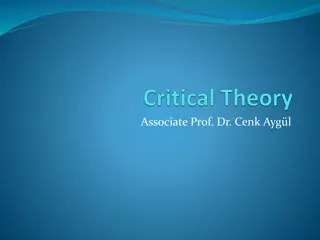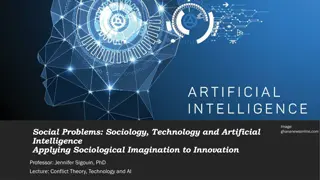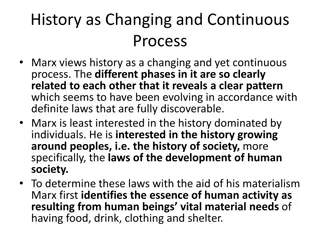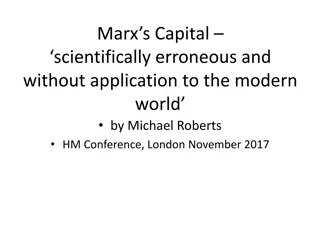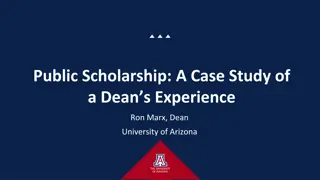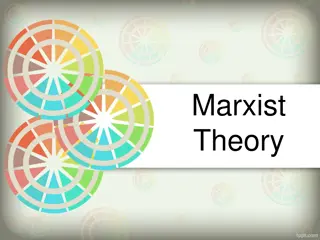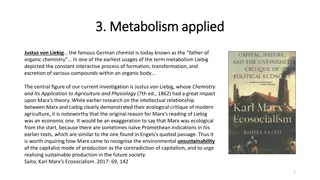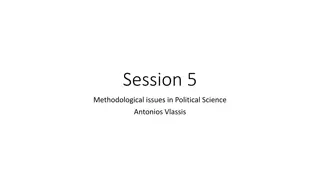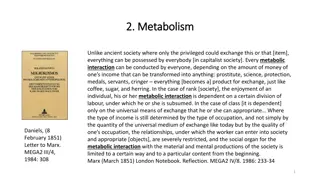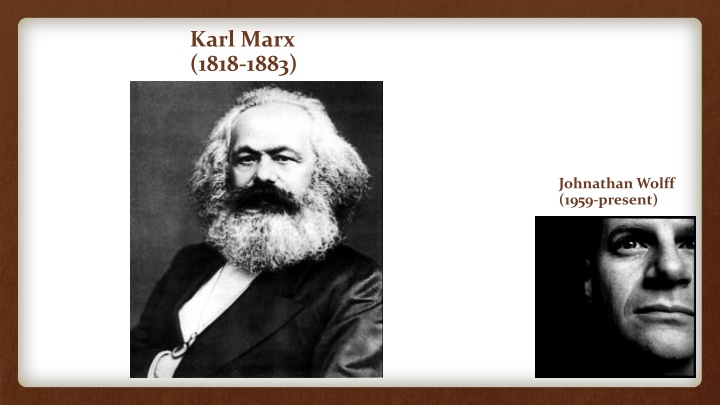
Views on Class Struggle, Religion, and Communism by Marx and Wolff
Explore the ideas of Karl Marx and Johnathan Wolff on class struggle, religion, and communism. From the origins of inequality to the role of religion, delve into the principles of historical materialism, capitalism, and alienation, as well as the concepts of freedom, domination, and revolutionary dictatorship. Discover the contrast between utopian and scientific communism through the lenses of Enlightenment Liberalism and Conservatism.
Uploaded on | 1 Views
Download Presentation

Please find below an Image/Link to download the presentation.
The content on the website is provided AS IS for your information and personal use only. It may not be sold, licensed, or shared on other websites without obtaining consent from the author. If you encounter any issues during the download, it is possible that the publisher has removed the file from their server.
You are allowed to download the files provided on this website for personal or commercial use, subject to the condition that they are used lawfully. All files are the property of their respective owners.
The content on the website is provided AS IS for your information and personal use only. It may not be sold, licensed, or shared on other websites without obtaining consent from the author.
E N D
Presentation Transcript
Karl Marx (1818-1883) Johnathan Wolff (1959-present)
Class and Class Struggle Marx on Religion Communism
Three Views of Human Reason and Social Progress Enlightenment Liberalism: See, e.g. Wollstonecraft, p. 98-99, 100; Paine (in Wollstonecraft), p. 94); Declaration of Independence; Declaration of the Rights of Man Conservatism: See e.g. Edmund Burke; Klemens von Metternich): See, e.g. Metternich (in Lualdi), p. 139, 140; Burke (in Wollstonecraft), p. 84, 85 Historical Materialism: Karl Marx; see definition in Wolff, p. 52
Class and Class Struggle Bourgeoisie Proletariat Petite Bourgeoisie Land Owners/Aristocrats The origins of inequality (Wolff, p. 49)
Marx on Religion Marx and the Young Hegelians Marx compared to Paine Religion as the opium of the people (3 features; Wolff p. 20) Religion as symptom (see Wolff, p. 13)
Communism Capitalism and Alienation (Wolff, p. 94) Freedom and domination (e.g., see Lualdi, p. 152) Revolutionary dictatorship (Wolff, p. 92) Utopian vs scientific communism (Wolff, p. 93)
Class and Class Struggle Bourgeoisie Marx on Religion Marx and the Young Hegelians Communism Capitalism and Alienation (Wolff, p. 94) Proletariat Marx compared to Paine Freedom and domination (e.g., see Lualdi, p. 152) Petite Bourgeoisie Land Owners/Aristocrats Religion as the opium of the people (3 features; Wolff p. 20) Revolutionary dictatorship (Wolff, p. 92) The origins of inequality (Wolff, p. 49) Utopian vs scientific communism (Wolff, p. 93) Religion as symptom (see Wolff, p. 13)
488 Macon, Ga. Lewis W. Hine 1-19-1909. Bibb Mill No. 1 Many youngsters here. Some boys were so small they had to climb up on the spinning frame to mend the broken threads and put back the empty bobbins. Location: Macon, Georgia. (Lewis Hine, National Child Labor Committee, http://www.loc.gov/pictures/collection/nclc/)
General view of the spinning room, Cornell Mill, showing some of the young boys and girls employed there. See names on other photo. Cornell Mill. Location: Fall River, Massachusetts. (Lewis Hine, National Child Labor Committee, http://www.loc.gov/pictures/collection/nclc/)
This little girl (like many others in this state) is so small she has to stand on a box to reach her machine. She is regularly employed as a knitter in London [i.e., Loudon?] Hosiery Mills. Said she did not know how long she has worked there. (See report and other photos.) Location: Loudon, Tennessee. (Lewis Hine, National Child Labor Committee, http://www.loc.gov/pictures/collection/nclc/)

